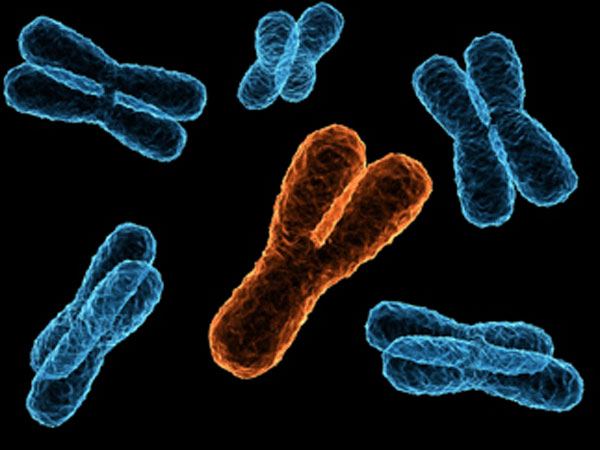Latest Findings On Y-Chromosome Could Help Infertile Men Have Kids
2013.11.22

The Y chromosome is often thought of as defining the male sex, but scientists have recently found that only two genes on the Y chromosome are actually needed to father offspring:
In the study, researchers injected two Y-chromosome genes into mouse embryos that lacked a Y chromosome, and found the embryos grew into adult mice that could produce offspring — not through the typical get-together with a female mouse, but through assisted reproduction techniques.
To see if males with this pair of Y genes could reproduce with a little help, Ward and her colleagues injected these spermatids directly into egg cells. They found they could successfully fertilize the eggs with this method, resulting in viable offspring.
The researchers emphasized the whole Y chromosome is likely needed for normal reproduction — its other genes help mature sperm develop.
The researchers noted these findings may not hold up in humans. But that doesn't discount the fact that it could help to develop new fertility methods for these infertile men have
children, particularly those suffering from azoospermia,
a condition which makes it difficult to produce healthy sperm cells.To see if males with this pair of Y genes could reproduce with a little help, Ward and her colleagues injected these spermatids directly into egg cells. They found they could successfully fertilize the eggs with this method, resulting in viable offspring.
The researchers emphasized the whole Y chromosome is likely needed for normal reproduction — its other genes help mature sperm develop.
[LiveScience]
More Articles
Copyright © Fooyoh.com All rights reserved.